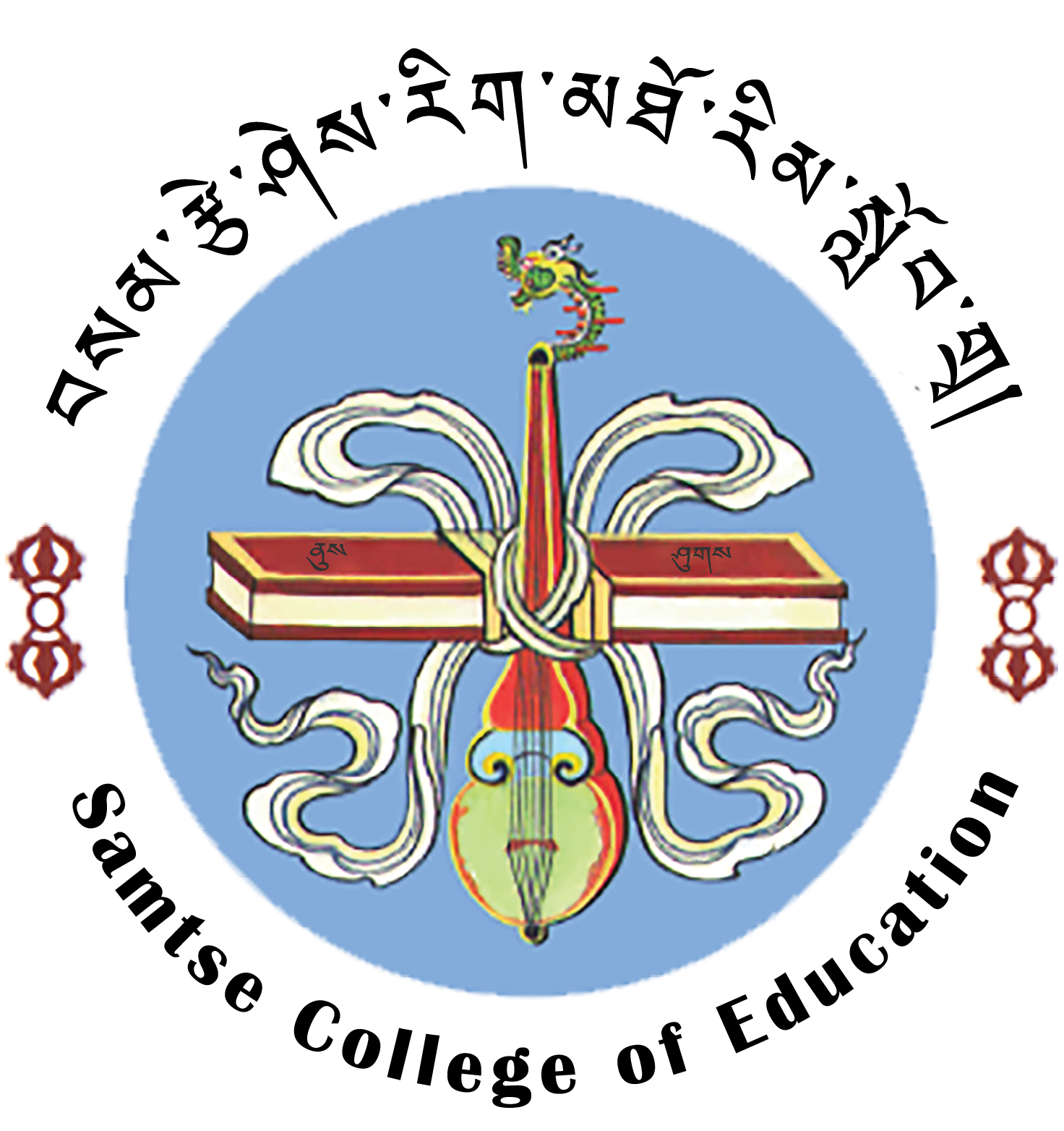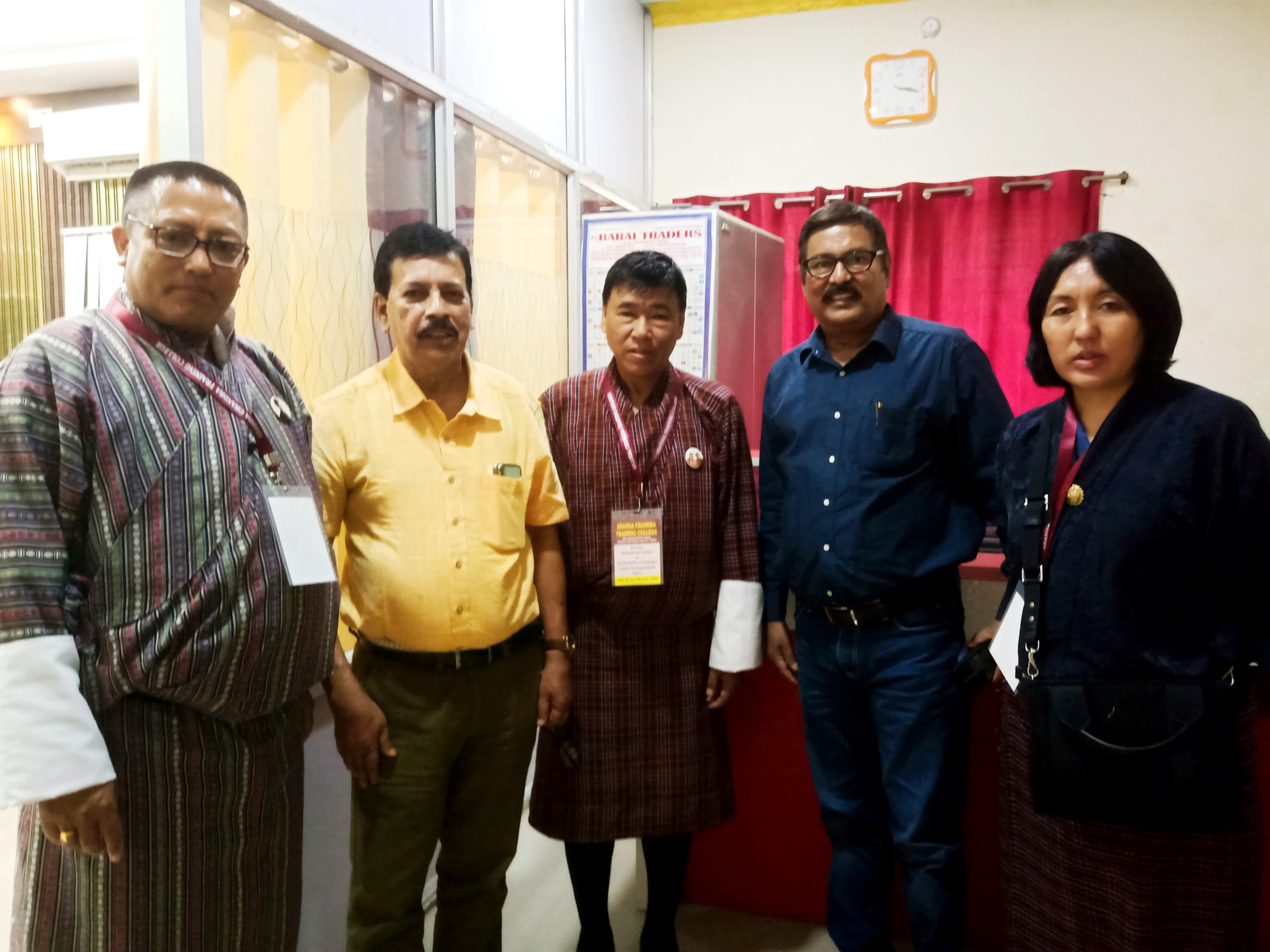𝗦𝗖𝗘 𝗳𝗮𝗰𝘂𝗹𝘁𝘆 𝗮𝘁𝘁𝗲𝗻𝗱𝘀 𝗜𝗻𝘁𝗲𝗿𝗻𝗮𝘁𝗶𝗼𝗻𝗮𝗹 𝗦𝗲𝗺𝗶𝗻𝗮𝗿 𝗼𝗻 𝗧𝗵𝗲 𝗣𝗼𝘀𝘀𝗶𝗯𝗶𝗹𝗶𝘁𝘆 𝗼𝗳 𝗮 𝗚𝗲𝗻𝗱𝗲𝗿𝗹𝗲𝘀𝘀 𝗦𝗼𝗰𝗶𝗲𝘁𝘆: 𝗥𝗲𝗶𝗺𝗮𝗴𝗶𝗻𝗶𝗻𝗴 𝘁𝗵𝗲 𝗙𝘂𝘁𝘂𝗿𝗲
An international seminar held at Ananda Chandra Training College in Churai, India on 20-21 March, 2025, marked a significant step toward reimagining societal structures beyond traditional gender binaries. The two-day event, titled “The Possibility of a Genderless Society: Reimagining the Future,” brought together experts from across the globe, with the delegation from Bhutan’s Samtse College of Education (SCE) playing a pivotal role in shaping the discourse.
SCE’s leadership team, including President Dr. Sonam Rinchen, Dean of Research and Industrial Linkages Dr. Kinley Seden, and Dean of Academic Affairs Mr. Kuenzang Gyeltsen, were specially invited to attend and contribute to the seminar. Their presentations, based on ongoing research initiatives at SCE, provided valuable insights into global discussions on gender inclusivity and education reform.
Dr. Rinchen’s plenary address set the stage for the event, challenging conventional gender paradigms and highlighting the importance of evolving educational systems to align with the global movement toward gender neutrality. “Can you imagine a future where we are known not by gender, but by what we truly are? A genderless society means we judge people by their talents, value, and kindness, and not by whether they are male or female.,” Dr. Rinchen emphasized.
Dr. Seden shared findings from SCE’s Gender Equality and Social Inclusion (GESI) Project, which highlighted a disconnect between students’ high regard for interpersonal qualities such as “Love and Care” and their limited understanding of gender equality concepts. The GESI diagnostic tools, developed through the situational analysis, will be used in the schools in March to collect further data on what Bhutanese students value and aspire to be.
Dr. Kunzang Gyeltshen, DAA, shared insights from the study, which is part of a regional project implemented across Bhutan, Bangladesh, Nepal, and Vietnam, focusing on the impact of gender and inclusive pedagogy on student participation and learning achievement. The findings revealed slight improvements in infrastructure, ICT facilities, and student participation, though the full implementation of gender-inclusive pedagogy faced challenges due to pandemic-related restrictions. One of the significant outcomes of the study was that while there were some positive changes in classroom participation and the use of ICT, teachers’ gender sensitivity remained low. However, the introduction of gender-inclusive pedagogy led to more active participation from girls, underscoring the potential benefits of such approaches.
This event underscored Samtse College of Education’s continued efforts to be a leading institution for research and innovation in education, both regionally and nationally, driving progress and shaping the future of inclusive, transformative educational practices. Their active participation in the seminar not only showcased the college’s leadership in this critical area but also reaffirmed its dedication to shaping a future where education transcends traditional boundaries, fostering a more equitable and progressive society.




